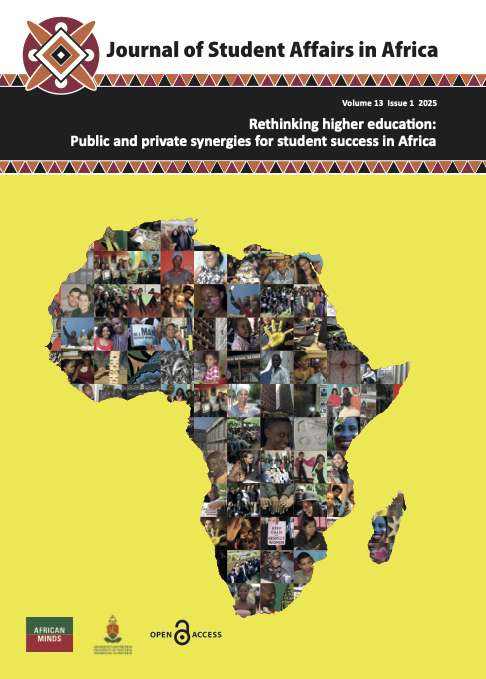Students’ extracurricular activities programmes: Prospects and challenges in Arabian Gulf Cooperation Council (GCC)universities
DOI:
https://doi.org/10.24085/jsaa.v13i1.5197Keywords:
University student extracurricular activities, Gulf Cooperation Council (GCC), student organisation, theory of student involvementAbstract
Abstract
This paper introduces the prospects enjoyed and anticipated challenges faced by the student extracurricular activities programs in some of the Gulf Cooperation Council (GCC) universities. Limited data and relatively little research on such programs exist, and little reliable information is available on the websites of some of the national universities in the GCC region. For this reason, the study restricted itself to examining two institutions—Qatar University and Sultan Qaboos University in Sultanate of Oman—as case studies. These two universities were chosen due to their significant engagement in student extracurricular activities and their substantial students enrollment numbers. Indeed, the student extracurricular activities program is a growing section in some GCC universities, with different orientations, concentrations on, and comparative advantages to be found among them. Nonetheless, these programs may face several expected challenges within the GCC setting due to the disparities in rules, practices, and objectives across different universities. Quest. 1: In what ways are Qatar University and Sultan Qaboos University in the GCC region effectively integrating their extracurricular activities programs as essential components of educational and developmental policy? Quest. 2: What motivates Qatar University and Sultan Qaboos University to engage in student extracurricular activities programs? Quest 3: What challenges are expected to confront these programs at the two universities?
Addressing these study concerns necessitates an explanation of the policies and practices that are forming and impacting the development of the student extracurricular activities program as a valuable initiative.
Keywords: University student extracurricular activities, Gulf Cooperation Council (GCC), student organization, theory of student involvement
Downloads
Published
Issue
Section
License
Copyright (c) 2025 Nazar Hilal

This work is licensed under a Creative Commons Attribution-NonCommercial-ShareAlike 4.0 International License.
Authors who publish with this journal agree to the following terms:
Authors retain copyright and grant the journal right of first publication with the work simultaneously licensed under the Creative Commons Attribution Share-alike 4.0 International License that allows others to share the work with an acknowledgement of the work's authorship and initial publication in this journal.
Authors are able to enter into separate, additional contractual arrangements for the non-exclusive distribution of the journal's published version of the work (e.g., post it to an institutional repository or publish it in a book), with an acknowledgement of its initial publication in this journal.
Authors are permitted and encouraged to post their work online (e.g., in institutional repositories or on their website) prior to and during the submission process, as it can lead to productive exchanges, as well as earlier and greater citation of published work (See: The Effect of Open Access).


